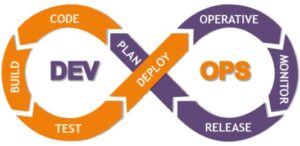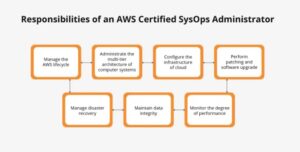
The Role of Managed Security Services in Threat Mitigation
The Role of Managed Security Services in Threat Mitigation Introduction In today’s hyper-connected digital economy, cybersecurity threats are not only growing — they are evolving
🔥 Limited Time Offer 🔥 Get the Premium Monthly Plan for just $11. 99 $19.99. Use code UPSKILLNOW and unlock exclusive benefits 👉Subscribe Now!

The Role of Managed Security Services in Threat Mitigation Introduction In today’s hyper-connected digital economy, cybersecurity threats are not only growing — they are evolving

Top 5 Cloud Security Tools That Are Revolutionizing the IT Industry Introduction As businesses increasingly migrate their data, applications, and infrastructure to the cloud,

From Stress to Success: Let Managed Services Handle IT Introduction With the rapidly accelerating digital environment, organizations today depend on technology more than ever.
Table of Contents
DevOps and SysOps are crucial because they can help your organization’s IT operations and software development workflows.
Together, they may develop more effective and efficient procedures for developing, testing, and deploying software and managing and maintaining IT infrastructure.
The total advantages can help you enhance your time-to-market, reliability, and agility, which can help you stand out in today’s competitive business world. This article covers detailed knowledge of DevOps vs. SysOps.
Software developers and Information Technology (IT) experts should collaborate using DevOps. Shortening the software development life cycle and delivering features and bug fixes more quickly are the two objectives of DevOps. By combining automation, monitoring, and feedback loops, DevOps is accomplished.
Monitoring gives insight into the state of the software development process, while automation speeds up the delivery of software updates. Many organizations utilize DevOps to decrease the time between releases because it is a crucial component of contemporary software development.

“SysOps,” for “Systems Operations,” refers to various IT operations and management. It entails tasks including maintaining security and compliance, managing system backups and recovery, and monitoring and controlling system performance. The word has expanded recently to include DevOps or the automated software development lifecycle process.
Any organization that relies on IT systems to operate its operations must have a strong SysOps department. Businesses could not efficiently manage and maintain their systems without SysOps specialists, resulting in lost productivity and revenue. The significance of SysOps will only increase as businesses depend more and more on technology.

The Continuous Integration and Continuous Delivery (CI/CD) tenet serves as the foundation for the DevOps delivery methodology. This indicates that new software versions are routinely issued, and code modifications are frequently incorporated into the primary source. The objective is to make the software development process more agile and quick.
The SysOps delivery model, in contrast, has stability and dependability as its top priorities. Speed is less of a consideration, and updates to the code are only performed when necessary. This strategy is frequently applied to mission-critical systems where downtime must be minimal.
DevOps and SysOps are respectable methods for developing software, but each has advantages and disadvantages. DevOps often works better for businesses that need to move swiftly and frequently release new features. On the other hand, organizations that must ensure that their systems are highly available and resilient might consider SysOps.
The primary distinction between DevOps and SysOps is that the former is concentrated on code development, while the latter is concentrated on infrastructure management and code deployment. Modern DevOps teams require both DevOps and SysOps expertise.
The main goal of DevOps is to automate the entire process of developing software, from creating the code to testing and releasing it. On the other hand, SysOps focuses on automating the administration of infrastructure and the deployment of code.
DevOps and SysOps are both crucial, but they have different goals. While SysOps assists in managing the infrastructure and ensuring its seamless operation, DevOps enables developers to produce better code and release it more quickly.
DevOps takes a more proactive stance when it comes to responding to change. From the beginning of the project, the Development and Operations teams collaborate closely to guarantee that modifications can be made effectively and rapidly.
Additionally, automation is applied whenever possible to speed up the process. On the other side, SysOps adopt a more reactive strategy. Typically, incidents are handled as they happen, and modifications are only made when necessary. This frequently results in delays in updating, which might affect the system’s stability.
DevOps and SysOps strive to expedite the change-implementation process while maintaining quality control. To do this, DevOps teams frequently use automation, whereas SysOps teams frequently use manual procedures. Both strategies, however, have benefits and drawbacks.
Although automation can enhance consistency and eliminate errors, it can also be challenging to set up and manage. Although manual processes are more straightforward and require less upkeep, they are also more prone to human error. The ideal strategy ultimately depends on the particular requirements of the organization.
When discussing the differences between DevOps and SysOps, particularly in terms of the benefits they can offer enterprises, there are a few crucial topics to consider. DevOps is geared towards quicker iteration and delivery of new features and functionality, whereas SysOps is primarily concerned with the stability and performance of systems.
Therefore, DevOps is more advantageous for firms aiming for quicker innovation and agility, while SysOps is more advantageous for companies focusing more on stability.
Infrastructure management techniques such as DevOps and SysOps aim to streamline the software development process. There are, however, some significant differences between the two. While SysOps emphasizes monitoring and scaling, DevOps focuses on continuous integration and delivery. Both methods promote communication between the development and operations teams, but DevOps adopts a more comprehensive strategy by including tools and procedures from all phases of software development.
DevOps is, therefore, frequently regarded as a more thorough approach to managing infrastructure. SysOps, however, can be more appropriate for companies with well-developed DevOps practices.
DevOps and SysOps have been at odds with one another for many years. There is no universal agreement on the superior choice because each side has perks and downsides. DevOps offers several significant advantages over SysOps. First, DevOps places a greater emphasis on automation. This implies that manual processes (such as deployments and monitoring) can now be automated, which reduces time spent and boosts productivity.
Since DevOps is designed for quick deployment cycles, it can perform significantly faster than SysOps. Since there is less testing and quality assurance time, this pace could result in instability. SysOps, however, relies heavily on tried-and-true processes and procedures. Thus, it may take longer to deploy new code modifications, but it is generally more stable.
There are two basic methods for managing IT infrastructure: DevOps and SysOps. Both have benefits and drawbacks, and the optimal choice for a particular organization depends on its requirements. A relatively recent methodology called DevOps focuses on communication between the development and operations teams.
Together, these teams can more successfully manage system modifications and swiftly roll out new features. DevOps has the benefit of allowing for more swift problem discovery and resolution, which can assist in lowering the risk of outages.
DevOps may, however, take more resources than some organizations are willing to commit, according to some organizations. On the other hand, SysOps is a more conventional strategy that emphasizes operational effectiveness. Although it might not be as agile as DevOps, this method can be more cost-effective for businesses with limited funding. The ideal strategy for a company will ultimately depend on its unique requirements and objectives.
SysOps and DevOps complement one another in a number of ways:
There are two separate approaches to managing infrastructure and software development: DevOps and SysOps. Despite some parallels, the two’s main distinctions are how they approach change.
SysOps is more concerned with stability and repeatability, while DevOps is more concerned with communication and collaboration between developers and operations workers. Recognizing these significant distinctions is crucial when deciding which approach is best for your company.
Kickstart Your Career in Cloud Computing Today!
Explore Now© 2025 All rights reserved | Privacy Policy | Terms and Conditions | Sitemap | Cookie Policy




